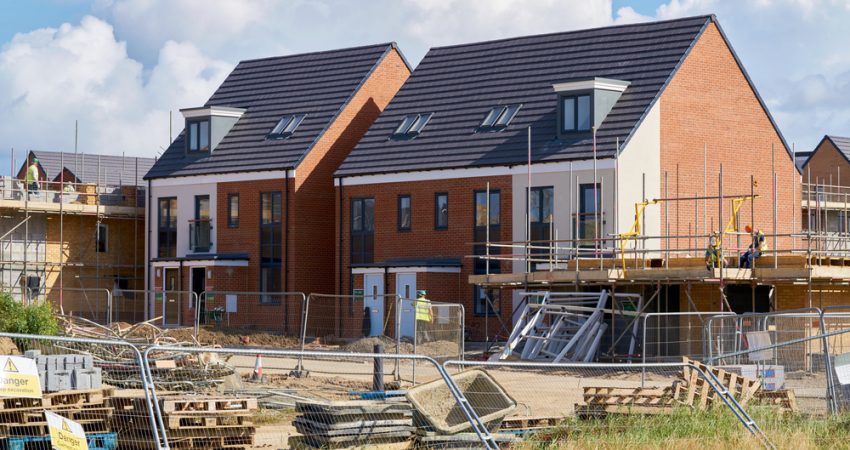Great news as April data pointed to a marginal expansion of UK construction output, driven by the fastest rise in housebuilding so far in 2019. Commercial work and civil engineering activity continued to decline, but at slower rates than in March.
Markit/CIPS UK Construction PMI®
Key Findings:
- Construction output rises for the first time since January
- Residential work expands at fastest pace for four months
- Civil engineering and commercial activity fall again
The forward-looking survey indicators nonetheless remained subdued in April, with new orders falling for the first time since May 2018 and business optimism easing to its lowest since last October. Concerns about the de mand outlook resulted in more cautious staff hiring strategies in April, as highlighted by the first fall in workforce numbers since July 2016.
mand outlook resulted in more cautious staff hiring strategies in April, as highlighted by the first fall in workforce numbers since July 2016.
At 50.5 in April, up from 49.7 in March, the headline seasonally adjusted IHS Markit/CIPS UK Construction Total Activity Index posted above the neutral 50.0 threshold for the first time since January. The latest reading signalled a modest expansion of overall construction output, which contrasted with the declines seen in each of the previous two months.
House building was by far the strongest performing area of construction work in April. Latest data revealed a solid expansion of residential work, with the rate of growth reaching its highest since December 2018. Survey respondents commented on resilient demand conditions and a strong flow of new buyers.
Commercial work was the weakest area of construction output in April, which continued the trend seen during the first quarter of 2019. A number of firms linked lower commercial construction to Brexit-related uncertainty and delays with client spending decisions. Civil engineering activity also decreased in April, although the rate of contraction was only marginal. Some firms commented on a lack of new work to replace completed infrastructure projects.
Construction companies indicated a modest decline in total new orders during April. The fall in new work was the fastest recorded since March 2018. Anecdotal evidence suggested that political uncertainty, softer UK economic growth projections and subdued demand for new commercial projects had all contributed to fewer tender opportunities.
Employment numbers fell slightly during April, which ended more than two-and-a-half years of sustained expansion. Survey respondents noted that lower business optimism and falling sales volumes had held back staff hiring.
Meanwhile, supplier performance deteriorated sharply in April, despite subdued demand for construction materials. The latest lengthening of vendor lead times was the greatest recorded since February 2015. Construction companies widely commented on low stocks and capacity constraints among vendors.
Stretched supply chains and rising raw material prices contributed to higher purchasing costs across the construction sector. The rate of input price inflation accelerated for the third month running and was the fastest since November 2018. Adding to pressures on operating expenses, the latest data also pointed to a robust and accelerated increase in rates charged by sub-contractors in April.
Tim Moore, Associate Director at IHS Markit, which compiles the survey, said, “A return to growth would normally be considered a positive month for the UK construction sector, but the weakness outside of house building gives more than a little pause for thought. Commercial activity and civil engineering both remained on a downward path in April as political uncertainty led to delays with spending decisions.
“Residential work retained its position as the sole driver of growth across the three main segments of construction activity. Survey respondents once again noted that residential projects were buoyed by strong demand for new homes, low mortgages rates and first-time buyer incentives.
“On the supply side, sub-contractor availability worsened and construction firms continued to report low stocks among suppliers in April. Latest data revealed the greatest lengthening of lead times for construction inputs since February 2015, reflecting ongoing capacity pressures across the supply chain.
“The forward-looking survey indicators remain subdued, with the UK construction sector recording a drop in business optimism during April and the largest fall in new work for over one year. A lack of new work has started to impact on staff recruitment, as signalled by a reduction in payroll numbers for the first time since July 2016. This provides another signal that construction firms are bracing for an extended period of soft demand ahead.”
Duncan Brock, Group Director at the Chartered Institute of Procurement & Supply, said, “The strongest rise in residential building since December 2018 was the only saviour of a sector otherwise heading for contraction again this month as deferred client decisions continued to impact on larger commercial and infrastructure projects, throwing the industry off-balance.
“Although the sector marginally moved into growth territory in April, there’s a huge question mark over whether there will be any further improvements in the coming months as new orders fell for the first time since May 2018. This lack of pipeline work has made firms more cautious about their hiring strategies with the first fall in employment levels since July 2016 in a bid to curb their rising costs and reduce their excess capacity.
“With the fastest rise in input costs since November 2018, material shortages, and stagnating workloads, the sector is slowly coming to terms with this new landscape of Brexit stalemate and its impacts with business optimism going through its worst phase since 2013.”





